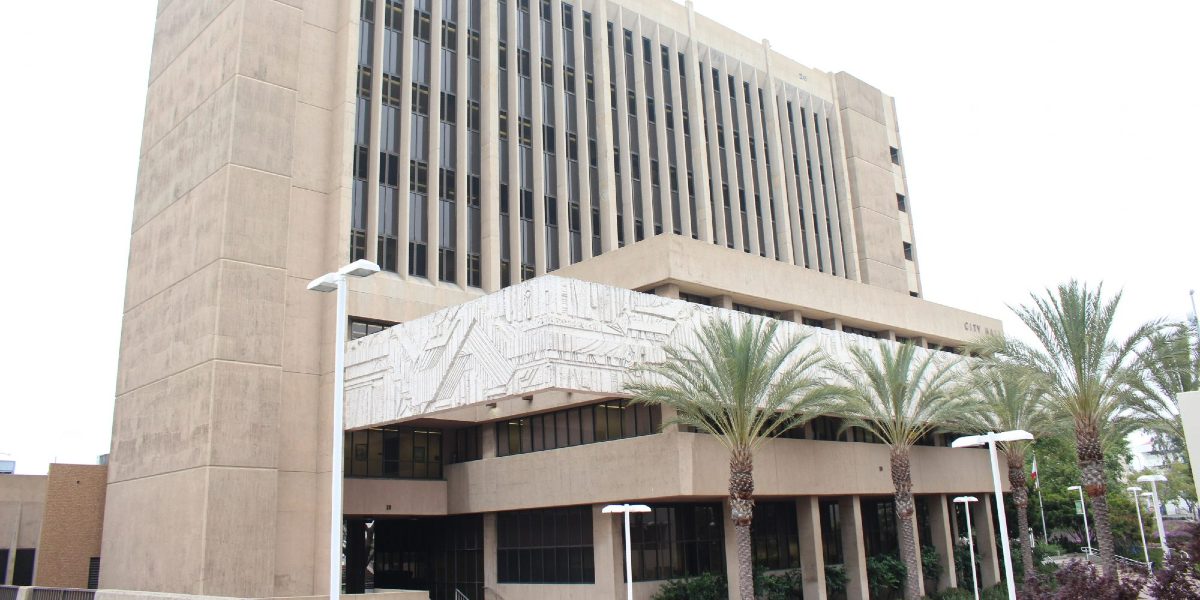Santa Ana’s harsh rent control and “just cause” eviction ordinance violate due process rights enshrined in the Fourth and Fourteenth Amendments to the U.S. Constitution, as well as the state constitutional provisions, according to a lawsuit filed by the Apartment Association of Orange County last week.
The lawsuit asks the OC Superior Court to toss out the entirety the rent control and “just cause” eviction ordinance – or at least its challenged provisions- and to enjoin Santa Ana from enforcing iit.
The lawsuit marks the first time in its 61-year history that the AAOC has sued one of the cities where it operates and represents rental-housing providers.
“We tried repeatedly to work with the city to address these concerns prior to adoption, but the city refused to meet with us,” said AAOC President John Tomlinson. “We could have avoided this lawsuit – and most likely found better solutions, had we been able to work with the city. Their exclusion of our industry is why we are now in this situation.”
OC Independent contacted the city for any comment or reply to the lawsuit, but received no response.
In October 2021, following the election of a young, progressive council majority, the Santa Ana City Council voted 4-3 to adopted separate rent control and “just cause” eviction ordinances that are arguably the most draconian in the state.
The rent control law limits annual rent increases to 3% or 80% of the Consumer Price Index, whichever is less – the most draconian limit in the state. This goes far beyond the state rent control law passed in 2019, which allows annual increases of up to 10%.
In 2022, the council consolidated them into one ordinance and created two enforcement mechanisms at the heart of the lawsuit challenging the ordinance’s constitutionality: a Rent Housing Board and a Rental Registry.
The quasi-judicial rent control board is appointed by the city council and consists of three tenant members, two “at-large” members who are not supposed to have any financial interest in rental property, and two landlord members.
Tenant-Dominated Rental Board Violates Property Owners’ Due Process Rights, Lawsuit Claims
Renters can petition the rent control board to roll-back rent increases or attempts by landlords to pass certain capital improvement expenses to tenants. Tenants can even petition to have their existing rent reduced. Landlords are allowed to file “fair return petition” if they believe the law stringent rent increase limits prevent them from earning a fair return.
Deliberately stacking the rental board in favor of tenant interests impairs apartment owners’ 14th Amendment right to due process by depriving them of fair and impartial hearing, contends the AAOC.
According to the U.S. Supreme Court, procedural due process “demands impartiality on the part of those who function in judicial or quasi-judicial capacities.”
As much as 91% of Santa Ana’s rental stock is subject to the rent control law, giving the tenant voting bloc on the rent control board an financial interest in blocking rent increases, claims the lawsuit.
“The Rental Housing Board is by design imbalanced in favor of tenants and tenant interests. At any given time, at least five of the voting Board Members are inclined to either be actively opposed to, or indifferent to, property owner interests,” says the lawsuit.
Property Qualifications To Sit On Rental Board May Violate State Constitution
The structure of the city’s rent control board also violates Article 1, Section 22 of the California Constitution – a prohibition on using a property qualification as a condition for holding office.
Eligibility for a seat on the rental housing board is explicitly conditioned on a either a positive or negative property qualification. For example, renters have a property interest in their rental agreements, while the property qualification for serving as an at-large member of the rental board is to have no financial interest in rental property.
Lawsuit Decries Santa Ana Rent Control Provisions As “Constitutionally Confiscatory”
The Apartment Association of Orange County’s legal challenge acknowledges rent controls as a “legitimate exercise of a municipality’s police power” – but only if they are “reasonably calculated to eliminate excessive rents” while at the same time allowing landlords to a earn a “just and reasonable return.”
The lawsuit contends Santa Ana’s draconian rent controls are designed to unreasonably lower rents and are “constitutionally confiscatory” and thus transgressive of 14th Amendment due process rights.
When inflation is low, landlords may not raise rents by more than 80% of the inflation rate. When inflation is low – such as 1% to 2% in the years preceding the pandemic – landlords would be constrained from increasing rents by more than 80% of inflation. Even in a low inflation economy, landlords will be legally prohibited from enacting rent increases that merely keep pace with inflation.
When inflation is high – as it has been for the last couple of years – landlords can only increase rents by 3%. Although CPI currently stands at 6.4%, and cost drivers such as energy services are up 15%, Santa Ana limits rent increases to 3%.
The lawsuit claims this “delta” will grow to “unconstitutional proportions” and deny property owners of the fair return to which they are entitled. The AAOC contends the landlord protections built into the ordinance are inadequate, characterizing the fair return petition process as “burdensome, marked by serious delay, and unwieldy” given the anticipated volume of such landlord petitions.


